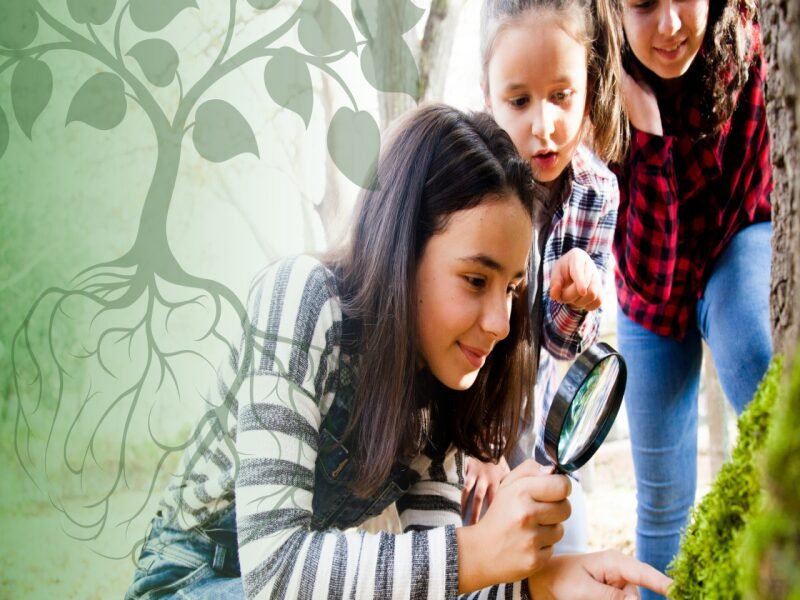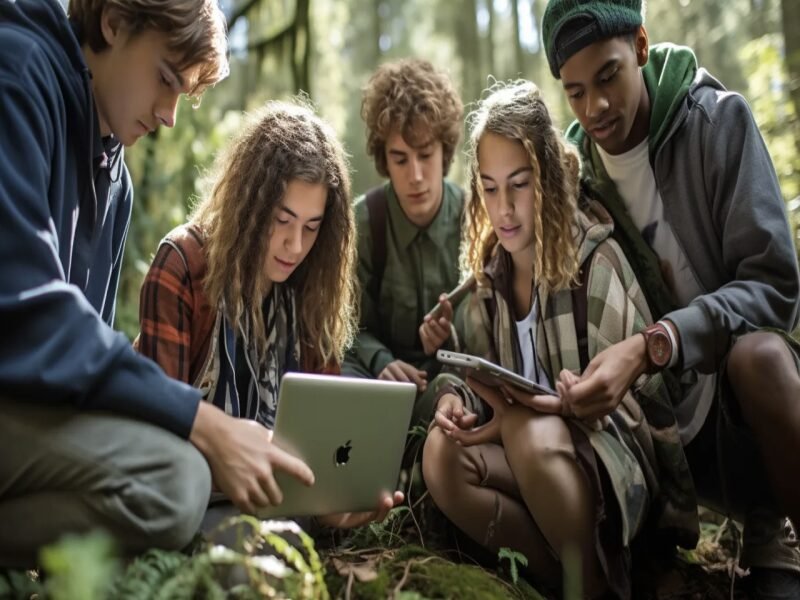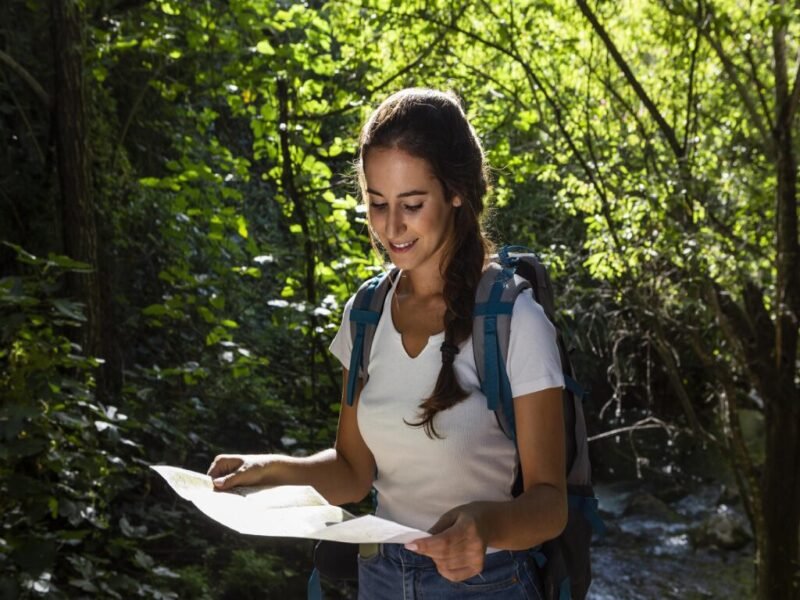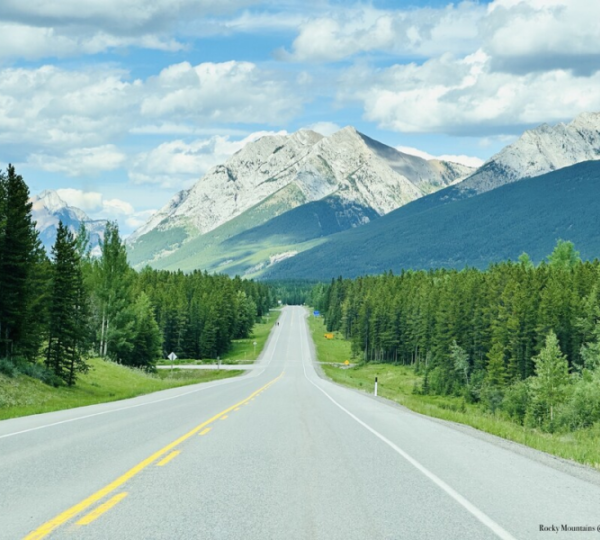Introduction – The Power of Education
At a time when awareness and consciousness for the environment and responsibility for the earth, and people is increasingly being adopted across the world, sustainable tourism has become a strong tool to bring the change to world. Consuming a country or region or product no longer implies that one could do so in the traditional intrusive manner; one has to explore responsibly so to speak. As the core of this movement people realize the strength of education. In this way, we create the precondition of better awareness and understanding of sustainable travel ideas as actionable knowledge that will help people to become more responsible travelers. In this particular blog post, I strive to discuss why education represents a critical aspect of enhancing awareness regarding sustainable travels and seeking ways by which it impacts a far better attune traveling approach.

What is Sustainable Travel?
Responsible travel also referred to as sustainable travel is a manner of travelling that causes change which is positive and permanent to the site, people and economy being visited. It has to do with how we must make rational decisions fulfilling environmental agreements and how making tourism advantageous for us makes it advantageous for the destinations we visit as well.
The core principles of sustainable travel revolve around three pillars:
- Environmental Sustainability: This involves minimizing your carbon footprint, conserving natural resources, and protecting biodiversity. It means choosing eco-friendly transportation options, reducing waste, and respecting wildlife and their habitats.
- Social Sustainability: This focuses on respecting local cultures and traditions, supporting local businesses, and contributing to the well-being of communities. It means engaging with local people in a respectful manner, learning about their way of life, and supporting their livelihoods.
- Economic Sustainability: This aims to ensure that tourism benefits local economies and communities in a fair and equitable way. It means choosing locally owned accommodations, purchasing local products, and supporting businesses that prioritize fair wages and working conditions.
Examples of sustainable travel practices include:
- Opting for public transportation, cycling, or walking instead of private vehicles.
- Choosing eco-friendly accommodations that prioritize energy efficiency and water conservation.
- Supporting local businesses and restaurants that source ingredients locally.
- Reducing waste by carrying a reusable water bottle, coffee cup, and shopping bag.
- Respecting wildlife and their habitats by observing them from a distance and avoiding disruptive behaviors.
- Learning about local cultures and traditions and engaging with local people in a respectful manner.
In what way does Education Aid the Pursuit of Sustainable Travel?
Education plays a pivotal role in fostering sustainable travel awareness by:
- Increasing Awareness and Understanding: Education offers travelers with information and knowledge about the consequences of their decisions and choices on travel. They learn how to understand that the environments, social and economic are interrelated and the impact one has when doing something to them.
- Empowering Travelers to Make Informed Choices: In this way, when the travelers know about the principles of sustainable travel, they can make the best travel decisions among destination, transportation, lodging and activities. Sometimes they can pick plans that are beneficial to them and at the same time exclude or limit the undesirable.
- Shifting Attitudes and Behaviors: Education may therefore help change the prevailing perception about travel, and encourage travelers to be more responsible. It is possible to encourage the benefits attached to responsibility and infuse travelers with the need to be recognized as a participant in sustainable travels.
- Promoting Long-Term Commitment: Education is not simply the process of passing on ideas: It is the process of enhanced perception of responsible tourism. This can be a long-term guaranteeing of responsible travelling both locally and internationally.
Focusing on education, you commit changes not only to a single tourist but to change the entire sphere of tourism. When the travelling consumers ask for sustainably run products and services, businesses and touristic destinations follow up by integrating sustainable measures, thus, encouraging a healthy positive loop.
Self-organized learning with the use of content and concepts provided by tourism industry can effectively promote sustainable travel awareness.
Knowledge is the key to sustainable tourism, people can make right decisions and navigate wisely the chosen path. It can be of different types, thus all helping in building better understanding on sustainable travel principles and how they can be used.
Formal Education
The enhancement of sustainable travel topics within curriculums of schools must go on in order to affect the outlook of the young ones. There are certain concepts I introduce from the beginning of the course to promote responsibility and make students aware of being a conscious traveler.
- Curriculum Integration: Sustainable travel can be intergraded into many different subjects as geography, science, social studies as well as into language classes. This enables students to come up with different views of the given topic adding depth to the given topic of discussion.
- Interactive Learning Experiences: It is possible to make the learning more effective and engaging by engaging students in such activities as; taking them for ecology tourism, role playing activities such as taking the students to actually experience sustainable travel and then come up with reasons why they should employ sustainable tourism or alternatively using case studies, taking the students to exposed to best practice sustainable tourism sites.
- Emphasis on Critical Thinking: Promoting student’s ability to view tourism implications as well as assess the sustainability of different travel options can main proficient learners to become responsible tourists.
Informal Education
Informal education also has the significant influence in the conversation about the sustainable travel.
- Travel Documentaries and Books: Conclusion Should documentary films and books depict the natural attractions and hardship that is caused to numerous locations from increased tourism, people will get motivated to look for better solutions.
- Online Resources: Thousands of websites, blogs, and social media accounts are focused on eco-responsible travel, which is full of recommendations and good advice for tourists.
- Social Media Campaigns and Influencer Marketing: Messages and examples of responsible engagements with destinations, gained through social media can impress a wider audience and foster the right scale of tourism consumption.
- Community Workshops and Awareness Programs: We could also conduct seminars within communities that would inform the members of different communities on the impacts and profiting of sustainable tourism so that they could get involved into the actual promotion of the same.
Experiential Learning
These unit ecologies, thus established firmly the tenets in practice, become a powerful tool inculcating sustainable travel values.
- Immersive Travel Experiences: Exposing clients to involve them with the countries’ culture, wildlife, environment, and people in voluntary, eco- lodges and cultural interchange programmer gives the clients a first-hand experience besides enhancing their awareness and responsibility in sustainable tourism.
- Volunteer Tourism: The joy of volunteering with tourism projects that include giving a hand out to the local populace and the assistance in conservation programs not only avails the tourists an account of how they can repay for the privilege that they get to be associated with these tourism destinations, but also enable them understand the prospects and difficulties of ecotourism endeavors.
- Cultural Exchange: Education of residents and learning about their sustainable practices and those most sustainable practices in local cultures can enrich people’s knowledge and make them change their ways and be more sustainable.
It is for this reason that incorporating a combination of systems that intertwines formal, informal and experiential learning systems, the education on sustainable travel awareness can create a full-fledged education system that will greatly endear individuals with the responsibility of stewardship of this planet.
What are the Benefits of Sustainable Travel?
Sustainable tourism is not all about avoiding the worst, instead, it aims at maximizing the net enhancements by tourism to destinations and their populations. In adopting sustainable tourism, travelers are therefore have an opportunity to benefit from so many positive impacts that accompany sustainable tourism beyond meeting the need for an adventure.
Environmental Benefits
Ecological tourism is a way to preserve the most valuable and unique ecosystems and prevent changes in the climate.
- Conservation of Natural Resources: By using less water and electricity, avoiding unnecessary littering or swearing at wildlife, we can save the Earth and its wonderful gift – sceneries for future generations.
- Reduced Carbon Footprint: Cycling, Walking or taking Public means of transport instead of relying on car hire or using private cars as well as booking for energy saving accommodation can reduce on carbon emission resulting from transport.
- Protection of Biodiversity: This aspect can be achieved through supporting the right travel agencies which in turn support those wildlife species and help protect endangered species and their homes.
Social Benefits
Responsible tourism is therefore a way of encouraging the learning of different cultures and of ensuring that host nations and their inhabitants benefit too.
- Cultural Preservation: Through appreciating cultural practices of a particular destination, apart from making purchases from local people, tourists promote and preserve culture of specific destinations.
- Community Empowerment: Sustainable tourism in general is the chance for the enhancement of the people’s living standard and the capability to fully engage in tourism economy.
- Improved Quality of Life: Conversely sustainable traveling will reduce negative impacts hence positively contributing to the lives of people living in the tourist areas.
Economic Benefits
There is evidence that sustainability in travel can help create sustainable economic advantages for destination areas and aid sustainable development.
- Local Economic Growth: Sustaining tourism businesses found in local restaurants, shops, tour companies and others is the best way to make tourism money chocked within the local economy in terms of development.
- Job Creation: Sustainable tourism opens different employment opportunities that can be implemented in operating other hospitality, transport and service employment stations for the inhabitants.
- Investment in Conservation: In this way, sustainable tourism business, which earns money that can be spent on continuing nature preservation, is beneficial to preserve natural values and the stability of tourists spots.
In essence, sustainable travel creates a virtuous cycle: Through offering an experience that enhances the quality of the trip, travellers get to help the local people receive improved economic returns as well as help to promote cultural sustainability and the environment also receives improved handling with less or no negative impacts from the tourists.
How Can You Reduce Your Impact While Travelling?
Are you ambitious to be a more sustainable traveler today? Here are some practical tips and actionable steps you can take to minimize your impact and maximize your positive contributions to the places you visit:
- Plan Ahead and Do Your Research:
- Choose your destination wisely: Think twice about going to overcrowded places in order to reduce the amount of over tourism.
- Research sustainable transportation options: Choose the car only if there is no other way to get there or switch to public transportation, bikes, or your own two feet; or car share.
- Select eco-friendly accommodations: These may include hotels, hostels or guest house that have environmental and social justice accreditation or policy.
- Support local businesses: Eat at the green restaurants, buy from the local green stores and select the green tour operators to travel to different places.
- Pack Light and Smart:
- Reduce your luggage: The more weight you have to carry, the more fuel would be required to carry your luggage. Only pack what is necessary and the most important is clothes that can be worn in different combinations.
- Bring reusable items: Bring your own tap water bottle, travel mug, grocery/back-to-school bag, and food storage containers to avoid disposal.
- Choose eco-friendly toiletries: It’s advisable to choose such stable types of toiletries as solid products or reuse containers to minimize the amount of the plastic used.
- Conserve Resources:
- Save water: Shower less, do not leave the tap open while washing your teeth, and wash clothes with the same water whenever possible.
- Conserve energy: Some specific tips included: Switch off the light whenever you exit your room, switch off any other light in the room if that is not needed and switch off any charger that is not in use.
- Minimize waste: In as much as possible try to minimize consumption, make use of things many times before discarding them or convert them into something else. Do not use disposable plastics and dispose them properly.
- Learn about local customs and traditions: It’s important to learn what the customs of the place you are visiting are and adapt the behaviors and the clothes you wear according to them.
- Support local businesses: When selecting places to dine, to shop, or to organize the tour, it is better to stop to support local businesses.
- Engage with local people respectfully: Get acquainted with several basic expressions in the local language; be polite and respect indigenous people, never take photographs of a person without their permission.
- Choose Sustainable Activities:
- Opt for eco-friendly tours and activities: It will be wise to avoid those tours and activities that are so damaging to the environment.
- Support responsible wildlife tourism: Do not support cruises that torment animals or places that have an adverse effect on their populations.
- Give back to the community: Perhaps you could offer your time and energies or make a contribution to such organization.
- Offset Your Carbon Footprint:
- Calculate your carbon emissions: There are online calculators to estimate the amount of Co2 emissions that one makes during a trip.
- Invest in carbon offset projects: Invest in programmers that minimize emission of gases that cause results in climate change to counter balance your travels.
Resources for Sustainable Travel:
- Sustainable Travel International: www.sustainabletravel.org
- Responsible Travel: www.responsibletravel.com
- World Wildlife Fund (WWF): www.worldwildlife.org
- Leave No Trace: www.lnt.org
If you implement these tips into your travel, you can become a wiser and more sustainable traveler and help making this world a better place. It’s the little things that add up so let’s keep doing our part, even if it is just a little bit!

Sustainable tourism and education: the future of traveling
Even such concept as sustainability when it comes to traveling is slowly shifting with the world shifting as well. New ideas are being worked on continually with the responsible tourism frontier becoming more complex and full of possibilities for the future. Education will still be a key determinant of this future as traveler will need guidance on how they could get or help make the right decisions for the improved future of the society.
Emerging Trends in Sustainable Travel:
- Eco-tourism: This type of tourism involves visiting and exploring wild spaces as system neutrally as possible and as a bonus positively affecting the native population. Whole establishments such as eco-lodges, wildlife conservation and development projects, as well as certain tourism activities are wholly classified under eco-tourism.
- Slow Travel: This trend is characterized by slow and leisurely travel, focusing on getting to know the destination intimately and costs, minimized footprint and traveling around by car or bike and staying put in one location for days.
- Regenerative Travel: Sustainability is taken a step further by trying to make the result a net benefit to the environment and society. It encompasses efforts for replenishing ground, shared assets and strengthening community systems.
- Technology and Sustainability: Cleantech is slowly becoming the new buzzword in encouraging sustainable tourism and travel. Starting from emissions calculators to green travel search engines and booking engines, technology aids the traveler to make a better choice for themselves and the environment.
The Role of Education in Adapting to New Challenges:
Challenges which are so far observed in the tourism industry including climate change, over tourism, and the quest for the different, unique, realistic, and meaningful experiences will require the input of education to avert the horrific consequences on the industry and the environment.
- Climate Change Education: When travelers are informed on the effects of climate change such as the effects on the destinations and the need to ensure that they make low carbon emissions this will assist in controlling the impacts of climate change on the market.
- Over tourism Management: Informing for instance the travelers about the fact that tourism puts pressure on the beloved tourist attractions could help reduce overcrowding by recommending that they consider visiting recently less popular tourist attractions or that they should travel on certain date other than the most popular season.
- Promoting Responsible Travel Behavior: Education means that travelers are able to learn what they should do or avoid doing to avoid affecting the cultures and wildlife in their destinations thus using tourism to improve on the destinations and benefit themselves.
A Hopeful Outlook:
As has been noted earlier in the paper, the future of sustainable travel is bright. Developing an understanding of environmental and social problems, the demand for environmentally friendly tourism increases every year. This is increasing the demand and putting pressure on the industry to push more for growth and at the same time become more sustainable in their operations.
The effect of such influences is that education will remain the key to this positive process, so that travelers can become conscious consumers making the right choice for the betterment of the world. To create awareness that will make the globe a better place for creating and nurturing the next generation of tourists, everyone should support programmers of sustainable travel.

Conclusion
To reiterate, there is no one more capable of raising awareness for sustainable travel than education. Education makes tourists aware of their actions and their impact to the surrounding environment hence ensures that tourists take correct decisions that will shape the destiny of the future tourism.
That goes from education at school and other academic studies, to documentaries and materials we find online, up to the life-changing experience that tourists gain from their travels abroad – education makes people aware that the world is connected and our actions matter. It motivates us to adopt environmental friendly policies, reduce our impacts on the environment, promote local people.
From here on, including tendencies and innovations, education will keep on working to promote the responsibility of the population in their travels. It is important that recognizing the capability of education we need to make travel sustainable to shape a better future in our hand and for the generations.
Call to Action:
- Share this article: On social networks, repost the material about how education helps enhance sustainable travel awareness.
- Join the conversation: Please feel free to provide your own experiences of sustainable travel in the comment section below.
- Continue learning: Looking at the resources that have been discussed in this article and think about other sources that can offer information on responsible tourism.
- Make a difference: As you make your own travel plans, promote sustainable travel practices – that can make a difference in your journeys.
collectively we can make the maximum use of education in order to help build a sustainable world and to make tourism more responsible.




